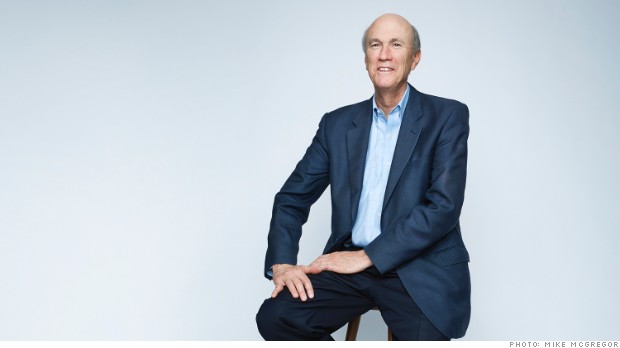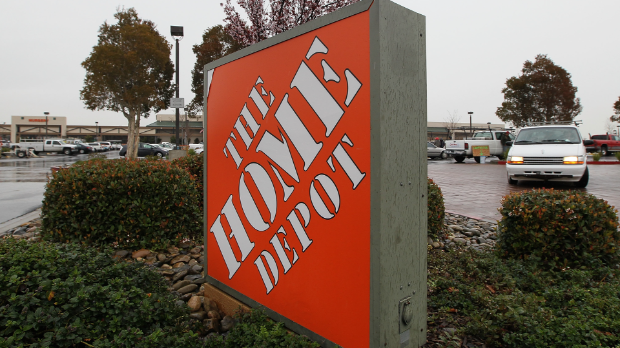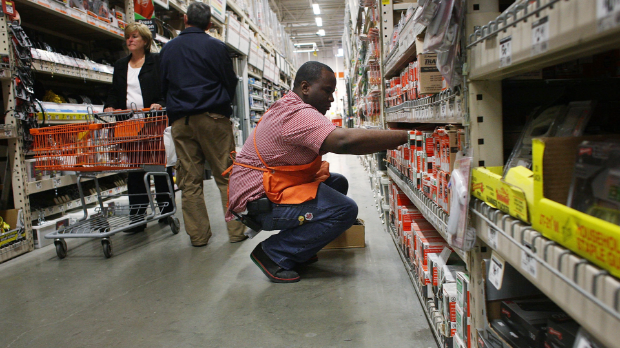The housing bust was certainly unpleasant for Frank Blake. As CEO of Home Depot (HD, Fortune 500), the world's largest home-improvement retailer, he had to lay off 11,000 employees and sell or shut down parts of the business. Revenues still haven't recovered, yet the stock has roared past its 1999 high, thanks in large part to Blake's focus on retailing's nuts and bolts: customer service, a revamped supply chain, and disciplined use of capital, which has actually diminished as profits have risen. The 64-year-old Blake -- who had never held profit-and-loss responsibility before taking Home Depot's helm -- talked recently with Geoff Colvin about winning online, why the company has virtually stopped opening new U.S. stores, differentiating from Lowe's (LOW, Fortune 500), and much else. Edited excerpts:
Home Depot blew away the analysts' estimates in the last quarter. How come?
Partly it was that the housing market is recovering, and we're seeing that. We had double-digit positive comps [same-store sales increases], which we haven't had since 1999. Part of it was also seasonal -- we had a wet and cold first quarter and a nicer second quarter vs. 2012. But the dominant thing is the slow recovery of the housing market.
And you expect that to continue?
We do -- slowly. As house prices appreciate, people are more willing to invest in their homes. They're more likely to view that as an investment rather than as an expense.
What are you seeing among contractors? That's a very important customer segment for Home Depot.
It's hugely important. It's about 35% of our sales. Our customer tends to be the smaller contractor -- five employees or fewer, under a half-million dollars a year in revenue. Following the Lehman collapse in 2008, you could actually see our pro business drop at a substantially faster rate than our consumer business. We had always hypothesized that as the housing market came back, the pro would start to recover at a faster rate than consumers, and we saw that for the first time in the first quarter.
So that part of the economy is starting to recover, which is not only critical for us, but also a source of jobs, which is an encouraging note.
Retailing is among the industries most disrupted by technology. How is Home Depot adapting its business model?
The Internet does a number of things to retailers. There's a general rule that software eats hardware, so some retailers are very disrupted -- think books, CDs, DVDs, and things like that. Not so much an issue for us: You can't digitize drywall.
On the other hand, the expectation of our customer has increased. When you have the alternative of ordering something from your home and having it delivered to you, your expectation of the experience in any retail store, when you take the time to get into your car and drive to us, is going up day over day, month over month. Now more than ever we can't afford dirty stores, rude associates, and out-of-stocks. So our whole strategy is, How do we make that a great experience for our customers as they come into our stores?
You've said publicly that Home Depot had a lot of work to do in the area of customer service. What specifically have you done?
First off, it is never ending. You've always got to prove yourself today and tomorrow again. But it starts by taking care of your associates. We're very proud of the fact that in the really tough housing downturn, we maintained salary increases for our hourly associates, we maintained 401(k) matches, and then we increased bonuses. There weren't a lot of companies in that space doing that.
Before you can even think about training, the first thing is, as an associate, "Does the company care about me? Does the company have my well-being at heart?" So we spent a lot of time on that. And then more tools on learning, more computer-assisted learning, more at-the-moment-of-need learning is what we've been focused on.
Differentiation is a key to brand power and competitive success in retailing. You have a great big competitor in Lowe's. How are you differentiating?
It is something we think about every day. We like to think of ourselves as focused around product authority, being truly the product authority in home-improvement retail, being first to market with key innovations, providing tools that will help our customers do their projects more simply, and then around customer service and how we invest in it and enable our associates. You don't go into a grocery store and go, "What is this stalk of broccoli?" What's unique about our stores is that customers every day come in and ask, "What is this? What do I do with it?" And so we focus on that training element of our associates and getting them so they can handle those issues.
You also have an app that lets people go into the store and tell their phone what they're looking for, and the app will direct them to the item.
Yeah, the most common question from our customers is, "Where is it?" So you download our app, and we have mapped every single store, so we know by product what its bay location is. You can just say, "Where are mailboxes?" And it will tell you, "Aisle 17, Bay C." It's very popular among our associates as well.
You do over a billion transactions a year, so you have an enormous quantity of data. How do you get maximum value out of it?
We're in the pretty-early innings of that. We're only recently finishing building out our data warehouse. If you did a comparison, we do less than other retailers. We've been more oriented in the past to in-stock and mass-merchandising.
For years the conventional wisdom held that America had all the Home Depot stores it could handle, and for years the company added more stores anyway. You don't do that anymore. Is the conventional wisdom finally correct?
We've pretty much built all the Home Depots we need to build. There will always be a few. The economy in the U.S. changes, so this year we will open a store in Minot, N.D. I never would have thought we'd be opening a store in Minot, but look at what's happening with shale oil -- it's booming. Things like that are always happening, but the days of building 200 stores a year or even 50 stores a year are gone.
The company has a stated goal of growing at GDP plus two percentage points. How are you going to do that without adding stores?
A lot of it goes back to your comment on the Internet. As we develop our web presence, we tie everything back to our stores. So we have buy online/return in-store; buy online/pick up in-store; buy online/ship to store. Almost one out of every three Internet customers now comes to the store to execute an online transaction, and when they're there, a significant percentage of them buy additional product.
Home Depot entered the Chinese market in 2006. It has largely exited. What are the lessons from that experience?
Many, many, many lessons. I never got the leadership right, so we had multiple changes in leadership. We didn't fully understand the customer. We thought we did, but we didn't.
What made Home Depot successful in the U.S. was the ability to leap over the distribution channel and give customers kind of wholesale pricing. We never broke through the distribution channel in China and saw no prospects of being able to do it.
We thought, "Gee, we buy more home-improvement product than anybody in the world. We ought to be able to leverage that in China." Easier said than done. Couldn't do it.
What is Home Depot's core competence?
It's aligning around a few big things. In a business with over 2,000 stores and 340,000 associates, it is our ability to define very clearly what as an organization we want to do and then have everybody aligned to that. Each year we try to identify the things that are really going to make a difference for us and focus on those few.
And what's at the top of the list right now?
At the top of the list right now is what we call interconnected retail, having as seamless an experience as possible for you as a consumer, whether you're interacting online or in the store.
The Leadership Series This is the latest interview with a top executive by Fortune senior editor-at-large Geoff Colvin. See video excerpts of this interview atfortune.com/leadership -- plus find Colvin interviews with Charles Schwab, the team of Jeff Immelt (GE) and A.G. Lafley (P&G), Pimco's Mohamed El-Erian, Novartis CEO Joe Jimenez, Whole Foods co-CEO Walter Robb, and many more.




No hay comentarios.:
Publicar un comentario